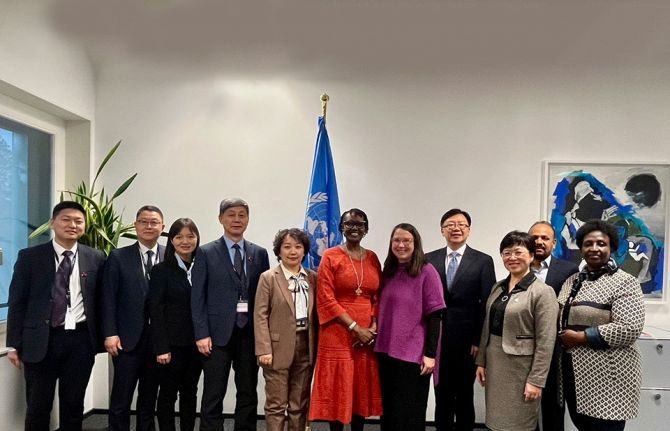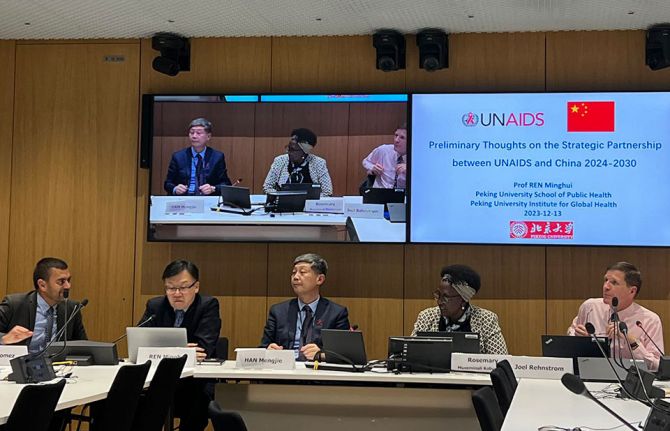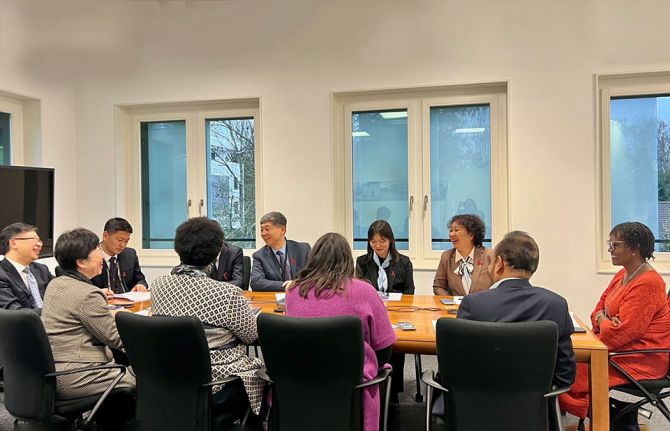



Update
UNAIDS supports China to play a bigger role to end AIDS at home and globally
19 December 2023
19 December 2023 19 December 2023The collaboration between UNAIDS and China was the focus of a consultation that took place on the sidelines of the 53 meeting of the UNAIDS Programme Coordinating Board.
The consultation brought together members of UNAIDS senior leadership, representatives from WHO and the Global Fund, and Chinese health authorities, to develop a bilateral strategic action framework and a memorandum of understanding (MoU) to expand and quicken the pace of the HIV response in China and globally.
“We are at a critical time in the HIV response, and we have a great opportunity that the Chinese delegation is here for our Programme Coordinating Board meeting”, said Rosemary Museminali, UNAIDS Director of the Office of Multilateral Systems, in her introductions.
Building on China’s long-standing international cooperation on health, participants acknowledged the potential to engage China more prominently in global efforts to end AIDS, especially under the South-South Cooperation framework and in line with China’s development schemes including Belt and Road Initiative and Global Development Initiative which aim at promoting global development and helping other developing countries to achieve the Sustainable Development Goals.
UNAIDS pointed out that China has a pivotal role to play in promoting local production of medicines and health commodities. At the same time, there is a need to build and expand relationships with other government departments to leverage all available resources to implement international best practices, promote access to quality services and support civil society’s engagement in HIV response.
Ren Minghui, Director of Global Health Institute of Peking University Health Science Center, is helping UNAIDS develop the framework and MoU. He outlined some initial key points in positioning HIV in the overall health strategy and broader development agenda. He also highlighted China’s specific context, including its increased contributions to global health and the HIV response, China-led initiatives and South-South collaboration, as well as a special call from President Xi to build a community with a shared and healthy future for mankind.
“There are important elements for China and for the global AIDS response, but for these we need to address equality and have a multisectoral mechanism,” said Ren Minghui.
Participants shared ideas on how to facilitate the development process of the two documents, which will take place over the next six months.
Prior to the consultation meeting, UNAIDS Executive Director Winnie Byanyima met with the Chinese delegation for the PCB meeting. She congratulated China’s progress in HIV prevention and treatment and urged more efforts to be made to address challenges such as providing quality treatment for people living with HIV, increasing testing, improving HIV prevention and eliminating stigma and discrimination.
“I hope China can play a bigger role to end AIDS at home and globally”, Winnie Byanyima told the delegation.



